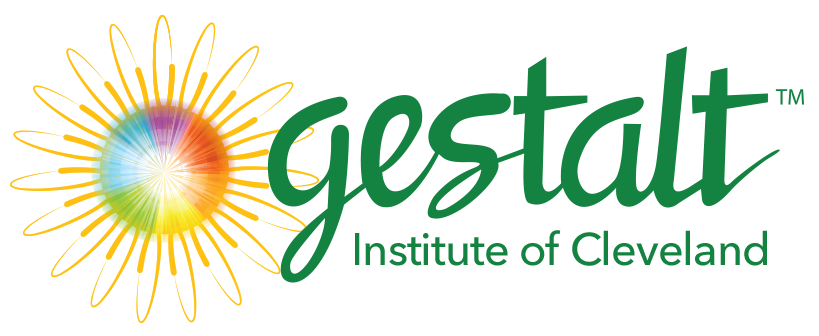
WORKING WITH TEAMS AND GROUPS
A Gestalt Approach to Working with Teams and groups
Registration is now open for 2026 Modules 1, 2 & 3
Special Discount - Save $125 per Module
When You Register for 2 or More modules (1, 2 or 3)
take $125 off each one
Module 1
Module 1, February 2 - 6, 2026
Registration is now open
Enroll in both Module 1 and Module 2 to receive an additional $125 off each module.
Groups and teams that become highly effective do not do so by accident. Instead, their effectiveness is built on an integration of knowledge, skills, and interventions that foster effectiveness. Working with Groups is designed to enable group leaders and team coaches in a variety of settings (leadership teams, limited duration work teams, therapy groups, committees, problem solving groups, etc.) to facilitate high-impact results through the application of concepts and principles based in a Gestalt approach to human behavior.
Armed with a well-reviewed base of Gestalt approaches, you, the leader/coach/manager facilitator /therapist will be better able to leverage these approaches to recognize, engage, address, and develop skills within individuals, subgroups and the group or team as a whole. The sum total of the use of these approaches will result in groups, teams, committees, that are high-functioning, results-producing, and individually-affirming.
Within the workshop, you will also be provided with ample opportunities to practice these skills, in a variety of settings, as a way of integrating these skills naturally into the way you lead groups. Having attended this workshop, you will lead work with groups and teams in a different way than you have in the past.
The learning objectives that underlie this unique professional development experience include:
1. Understanding and applying Gestalt concepts and principles as they relate to working with teams and groups;
2. Developing the capacity to see, assess, and intervene at multiple levels of system (intervening with individuals, sub-groups, and the entire
group) to address a variety of needs that may be occurring simultaneously;
3. Leveraging the Gestalt concepts and principles for success in clinical/therapeutic groups as well as in task/ leadership teams/community
groups and working committees;
4. Establishing and maintaining effective agreements and shared focus within groups and teams;
5. Understanding and leveraging the unique role of resistance/persistence within individuals, groups, and social systems;
6. Reinforcing and integrating the effects of interventions on the group/team and tracking the impact over time;
7. Differentiating the developmental phases of groups/teams and demonstrating how this awareness influences choices in intervening/leading at
any given point in time;
8. Creating and managing experiments within the group as tools for growth and expansion;
9. Consistently modeling ethical practice in working with groups;
10. Discovering and leveraging the facilitator’s unique perspectives, skills, talents, and “voice” in working with and leading groups/teams;
11. Understand the alignment of all of the above with the new ICF Team Coaching Competencies if relevant to your practice.
Available seats
We have a limited number of seats available for qualified and interested candidates in this Working with Groups and Teams
Module 1 workshop. As such, we would like to make these seats available for those who may have limited means. If you are an interested candidate please send us your name, phone # and best email contact. Contact us through the button below:
Module 2
Module 2, April 13 - 17, 2026
Registration is now open
Enroll in both Module 1 and Module 2 to receive an additional $125 off each module.
Working with Groups and Teams is a program designed to upskill personal development and clinical group facilitators, organizational leaders, community leaders, facilitators, consultants, and group/team coaches in leading and intervening with a variety of group/team settings (therapy groups, committees, leadership teams, limited duration work teams, problem solving groups, etc.) to generate increased effectiveness and high-impact results through the application of Gestalt human behavior concepts and principles.
Specifically, this program is focused on cultivating a deeper dive into effective use of self in various group/team settings with a focus on differentiation and conflict, issues and uses of power, intervening in middle phases of groups, working with polarities, and working with group rupture, repair, resistance and persistence.
Participants will leverage existing knowledge of Gestalt approaches, to recognize, engage, address, and develop the effectiveness of groups and teams at various levels of system (individuals, subgroups, and the group or team as a whole). Increased mastery of Gestalt approaches in group and team settings will result in accelerated and meaningful impact for facilitators/interveners and improved performance/results for the group/team as a whole.
Within the workshop, you will be provided with ample, real time opportunities to practice use of self in various group settings. The intensive practicum design enables participants to try on skills in a learning environment while also applying them in a real group setting. After attending this workshop, you will lead work with groups and teams in a more impactful and different way than you have in the past.
The learning objectives for this training program:
Understand and apply Gestalt concepts, principles, and frameworks as they relate to intervening with groups and teams;
Deepen your knowledge of Gestalt approaches for understanding conflict, differentiation, rupture, and repair within groups and teams;
Leverage Gestalt concepts, principles, and frameworks for success in clinical/therapeutic, community, task leadership, and personal development groups;
Increase your understanding and capacity to support teams and groups characterized by many types of difference;
Increase awareness of how your presence affects your role as an intervener with groups and teams;
Understand and leverage the unique role of resistance/persistence within individuals, groups, and teams;
Expand knowledge of how to intervene in the middle phases of groups and teams;
Increase capacity to use embodiment in the service of deeper learning and development;
Increase capacity to create and manage the Gestalt approach to experiments as a tool to raise awareness and expand choices that groups and teams can make;
Understand the alignment of these objectives with the new ICF Team Coaching Competencies, if relevant to your practice.
Module 3
Module 3 - November 4 - 7, 2026
Would you like to make more of an impact by enhancing how you meet and engage in groups, track systems, assure that interventions you make have impact and are sustainable? Would you like to deepen your presence to be able and really make a difference? This training program focuses on how to maximize use of self in supporting transformation in individuals, groups, organizations and social systems in which we live and thrive.
This advanced, experiential training program is designed to support the integration and mastery of skills in facilitating teams and groups. Working With Groups and Teams Module 3 is the capstone training for participants who have completed Modules 1 & 2 (or who have previous training or experience in group facilitation). This is an opportunity to bring forth and further hone your unique style, transform and develop your specific growing edges as a facilitator and intervener, learn from your skilled peers, and receive “real time” feedback from a Faculty consultant. With a focus on practice and application, participants in Module 3 will work in co-facilitator pairs to facilitate a team or group, utilizing a Gestalt approach. You will manage the process of building ground with “random participants” or an intact organizational team, explore and hold multiple perspectives in the field, and make “here and now” impactful interventions that support group development and learning.
Prerequisites
Working With Groups and Teams Modules 1 and 2
Learning Objectives
Upon completion of Module 3, participants will be able to:
Discuss Gestalt concepts and principles to facilitating groups;
Demonstrate methods for working with resistance/persistent at the individual and group levels;
Recognize the developmental phases of group process;
Apply principles of embodiment within the group to support deeper learning;
Develop interventions that emerge from areas of strength;
Practice creating interventions to integrate multiple perspectives; and
Demonstrate the ability to choose among possible interventions in order to support more effective connection and development of individuals, and the group as a whole.
Past participants of WWGT have noted significant impact the workshop had on their learning and effectiveness:
Alan Brenner recognizes the benefit of his Working With Groups experience:
“I’m keenly aware of the joys of working in groups that work well together; where there is great alignment of purpose, mutual awareness, empathy and shared values; where all group member—regardless of race, ethnicity, gender, or sexual preference feel safe to take risks, to voice different views, feel respected and heard. The Gestalt Institute of Cleveland is a world leader in group intervention and group participation training and the Groups faculty at GIC is truly extraordinary. No question—my Groups training at GIC has helped me to become a better group leader, member, and contributor.”
Jessica Colombi, another Working with Groups participant, states:
“I have worked in the public sector for nearly 15 years, navigating complex bureaucracies and systems. I have managed and been part of groups from a team of baristas at Starbucks to a group of academic advisors, to serving as co-chair of a professional association, to being part of a tight-knit, ethnic family. This curriculum helped me see dynamics in groups that I had never considered. In designing interventions as part of the week’s work, I got to put my skills to the test and practice in real- time with other practitioners and extraordinary faculty members. I left the week wanting more weeks to learn and practice! And ever since, I’ve found that I am attuned to members of groups that I am in—both personal and professional—and have used skills in this workshop to help those groups “hum.”
John Noell, also acknowledges the impact of his Working with Groups experience on his personal and professional work:
“I was amazed by the skills I was quickly able to put into practice at work and in my personal life. I was able to simultaneously track what was happening within the group, between individuals, and within myself. My awareness became super-charged and it enabled me to help make business meetings much more enjoyable and productive. My time with my family and friend groups also became immensely richer.
Faculty for this program are incredibly skilled and every cohort of GIC programs is filled with curious and talented people who seem to become fast friends. If you work in teams or within groups, as a facilitator or participant, you will greatly benefit from these programs. They receive my highest endorsement.”





